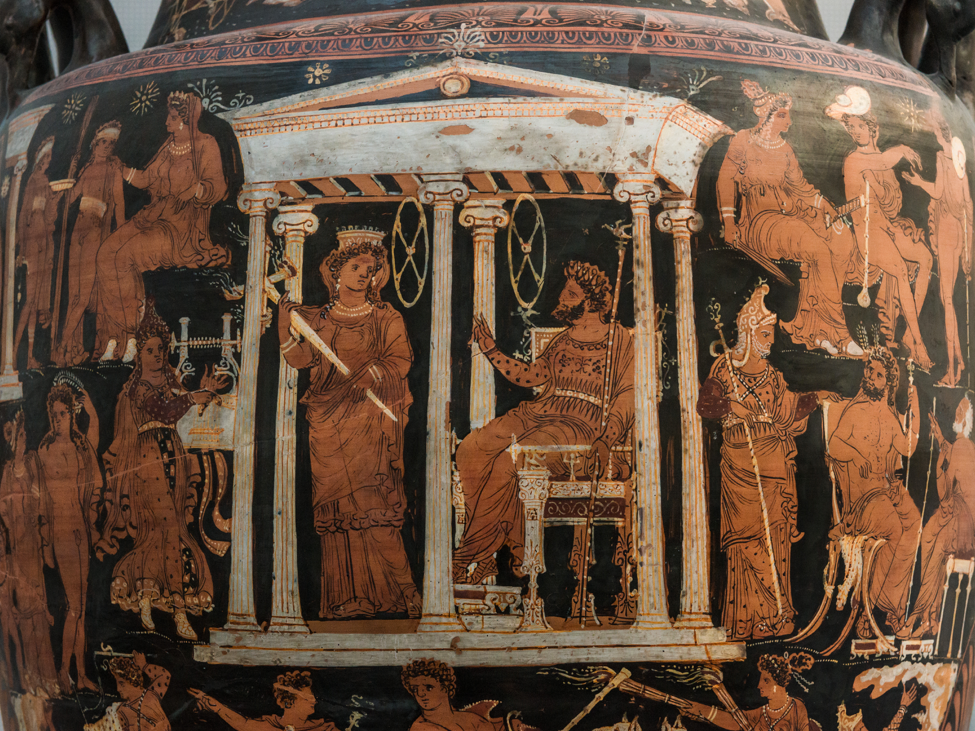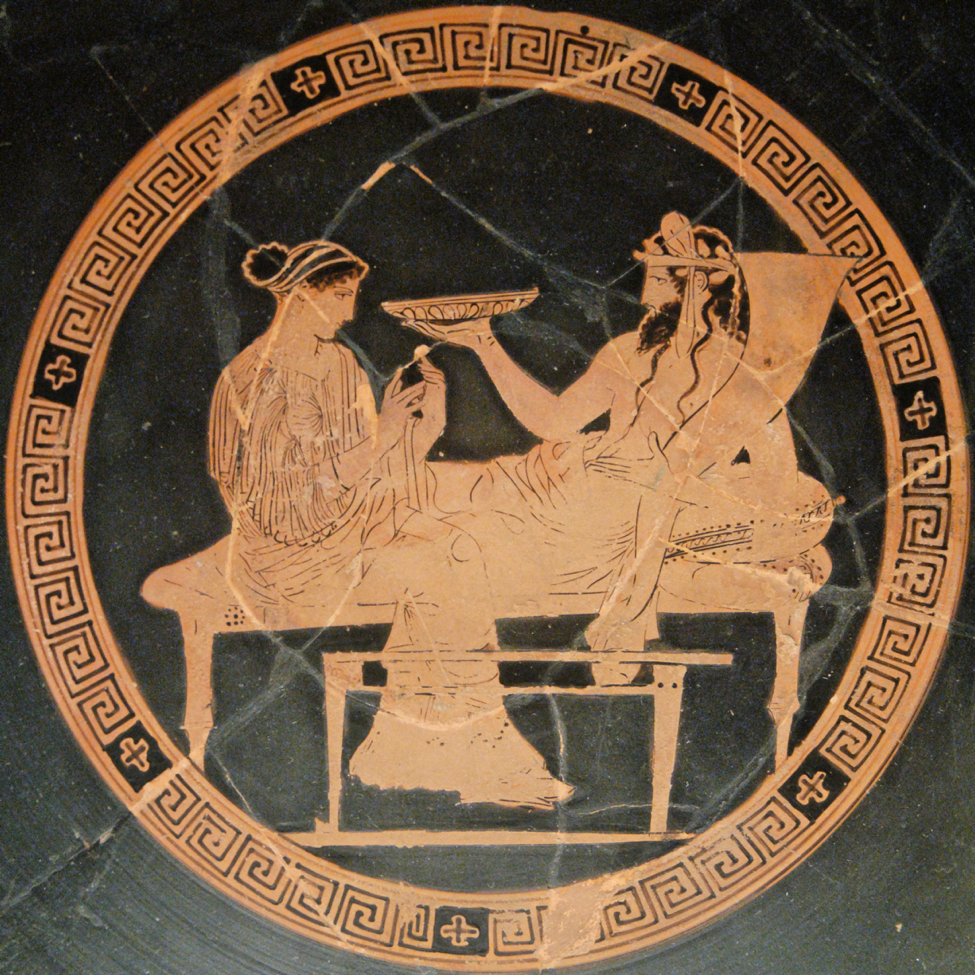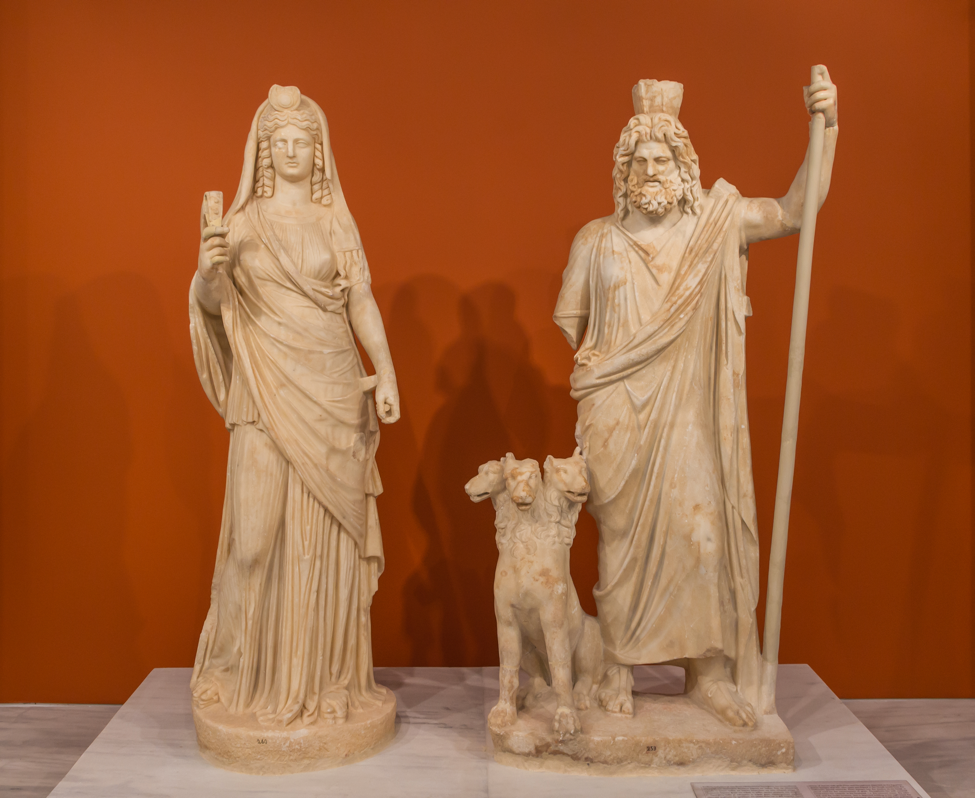Hades
Roman name: Pluto, Dis (wealth), or Orcus
Epithets: Aïdoneus (the Unseen One), All-Receiver, Pluto (wealth)
Symbols: scepter, grain (fertility), rooster (fertility), Cerberus
Functions: god of the Underworld and the dead

Hades was one of the children of Cronus and Rhea whom their father swallowed. After being rescued by his brother Zeus and helping Zeus gain control of the cosmos [see Origins], the three brothers Zeus, Poseidon, and Hades all drew lots to decide who would rule over various parts of the world [See Zeus]. Hades became the ruler of the Underworld. Hades was married to his niece, Persephone, whom he abducted [See Demeter].

There are very few myths about Hades other than the story of how he abducted and married Persephone. After the kerfuffle created by this incident had subsided, Hades and Persephone seem to have settled down to a rather ordinary married life as King and Queen of the Dead.

The name of the Underworld is sometimes referred to as Erebus (Ἔρεβος), which means “darkness” in Greek, but it is more frequently called the House of Hades. In practice, however, the name, “House of Hades,” is usually shortened to just “Hades.” For this reason, the term “Hades” refers to both the name of the god and the name of the place over which he rules. Different authors describe Hades (the Underworld) differently, but there are several common features. The three-headed dog, Cerberus, acts as a guard dog who prevents dead souls from escaping as well as preventing live people from getting in. There are several rivers in Hades, including the Styx (Στύξ, meaning “hateful”), which the gods swear by, and the Acheron (Ἀχέρων, meaning “woeful”). Later authors added the river Lethe (Λήθη, meaning “forgetfulness”), which causes the souls who drink from it to forget their past lives; see Plato, Republic 10.621 a-d and Vergil, Aeneid 6.714-715.
For most people, life in the Underworld was a hollow existence where their souls slowly lost consciousness and continued on as shells of their former selves. (For an extended portrayal of the souls in Hades, see Homer, Odyssey, Book 11.) The Islands of the Blessed, however, sometimes called Elysium or the Elysian Fields, was a place where a select group of souls lived in bliss. They kept their former personalities as well as their consciousness, and they continued to pursue the activities that had brought them pleasure while they were alive. Homer says that Elysium is reserved for the close relatives of the gods (Homer, Odyssey, 4.561-569) while later authors, like Pindar (Olympians 2.68-78), suggest that a virtuous life would allow a soul to spend eternity in Elysium.

